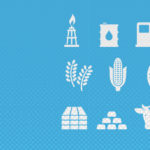Emerging markets and commodities, the biggest surprise in the first half of the year
After a turbulent end of 2015 for Latin American emerging markets, fuelled by the collapse of commodity prices, the first half of 2016 has been quite different. Since January, investment funds operating in Latin America have reported solid profitability ratios, in many cases above 10%.

So far, 2016 has not been an easy year for financial markets: ‘Brexit’, interest rates at all-time lows, concerns over global recovery… developed markets are suffering from extreme volatility and many stock exchange indexes are bearing huge losses.
However, emerging markets, especially in Latin America, are getting back in shape, in stark contrast to what the developments that marked the end of 2015 seemed to herald. The MSCI Emerging Market Index has increased by almost 16% since January.
Commodities and emerging markets go hand in hand
This increase has been largely driven by the recovery in commodity prices, which stumbled at the end of 2015 due to mounting doubts over global –and especially China’s - economic recovery. However, since January prices have rebounded sharply, by over 15%, almost as sharply as Latin American stock exchanges. Indeed, the economies of many of countries in the region depend, to a large extent, on commodities exports.
“Commodities and emerging market go hand in hand. Not surprisingly, some of these economies are largely dependent on oil prices (Mexico, Colombia) or base metals (PChile, Peru). In other words, it is only logical that we are seeing these upturns taking place almost simultaneously,” says Silvia San Bruno, BBVA Asset Management product specialist.
One of the reasons that explain this upward trend is the dollar’s relative stability in a context of continued delays and reduction of eventual interest lift-offs by the US Federal Reserve (Fed). This situation benefits both commodity prices and Latin American markets.
“Also, growth forecasts for 2016 and even 2017 are finally beginning to stabilize for emerging markets as a whole, but also for Latin America,” explains Joaquín García Huerga, Head of Strategy at BBVA Asset Management. “In addition, the emerging markets’ exposure to the uncertainty generated by ‘Brexit’ is limited,” he adds.
Also, we have seen number of significant political changes in the region, such as Mauricio Macri’s victory in Argentina’s presidential elections, or the impeachment process against Dilma Roussef in Brazil. “These events have fuelled expectations of greater economic policy orthodoxy in some countries of the region that are suffering from extreme imbalances, and this has added a huge boost after several years of very bad behavior,” said Silvia San Bruno
The funds benefitting from the new scenario
In this context of rebounds in the commodity and emerging markets, the funds that invest in these assets have been, obviously, the biggest winners. Of the 20 most profitable funds in Spain during the first half of 2016, 13 invest one or the other asset, as reported by Funds People, with data from Morningstar.
These include three funds managed by BBVA Asset Management: Quality Commodities, up 15.79% in the first half of the year, BBVA Bolsa Latam, up 13.51%, and Quality Selección Emergentes, with 6.87% since January.